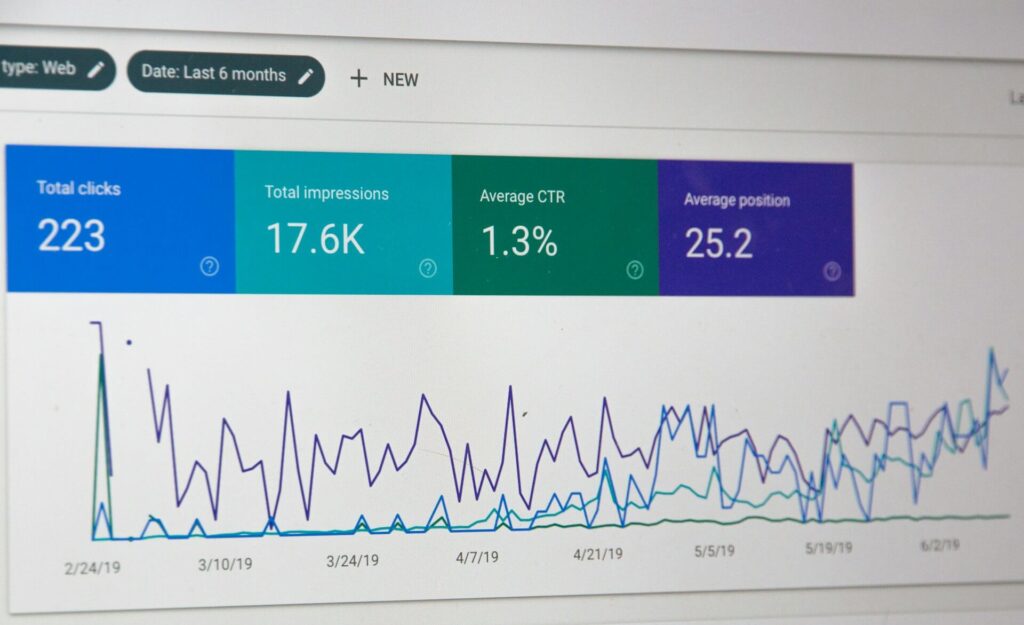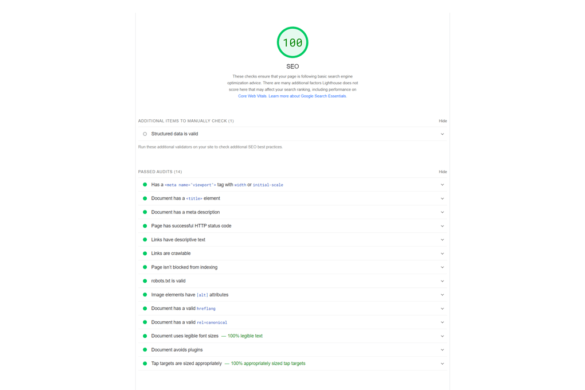Table of Contents
Small and medium-sized businesses (SMBs) often face challenges in getting their websites to rank high on search engine result pages (SERPs). This is where search engine optimization (SEO) comes into play. SEO involves optimizing a website’s content and structure to make it more attractive to search engines, ultimately leading to higher rankings. However, there are certain SEO practices that SMBs should avoid and others that they should implement to achieve success.
One of the most important SEO do’s for SMBs is to create high-quality, relevant content that targets their audience. This means conducting keyword research to identify the terms and phrases that potential customers are using to search for products or services. SMBs should then create content that incorporates these keywords in a natural and informative way.
Additionally, creating content that is shareable on social media can help increase visibility and drive traffic to the website. On the other hand, some common SEO don’ts for SMBs include keyword stuffing, buying links, and ignoring mobile optimization. These practices can result in penalties from search engines and ultimately harm the website’s rankings.
SEO Basics
Search Engine Optimization (SEO) is the process of optimizing a website to improve its visibility and ranking on search engines. It is a vital aspect of digital marketing that can help Small and Medium-sized Businesses (SMBs) to attract more traffic and generate leads. Here are some SEO basics that SMBs should keep in mind:
Significance of Keywords
Keywords are the phrases or words that people use to search for information online. They are the backbone of SEO and play a crucial role in determining the relevance of a website to a search query. SMBs should conduct thorough keyword research to identify the most relevant and high-traffic keywords for their business. They should also use these keywords strategically in their website content, headings, and meta descriptions to improve their chances of ranking higher on search engines.
Importance of Quality Content
Quality content is the foundation of SEO. It is what attracts and engages visitors to a website and encourages them to stay longer. SMBs should focus on creating informative, relevant, and engaging content that resonates with their target audience. They should also ensure that their website content is easy to read, free of grammatical errors, and optimized for search engines.
Role of Metadata
Metadata refers to the information that appears in the search engine results pages (SERPs) below the page title and URL. It includes the meta description, which is a brief summary of the content on the page. SMBs should ensure that their metadata is optimized for search engines and includes relevant keywords and a compelling description that encourages visitors to click through to their website.
In conclusion, SMBs should keep these SEO basics in mind when optimizing their website. By focusing on keywords, quality content, and metadata, they can improve their chances of ranking higher on search engines and attracting more traffic to their website.
Technical SEO Essentials
Mobile Optimization
With the increasing number of users accessing websites through mobile devices, optimizing your website for mobile has become a crucial aspect of technical SEO. Google has even made mobile-friendliness a ranking factor in its search algorithm. To ensure your website is mobile-friendly, consider the following:
- Use a responsive design that adjusts to different screen sizes.
- Ensure that your website’s font size is readable on mobile devices.
- Avoid using Flash, as it is not supported on most mobile devices.
- Optimize images for mobile devices to reduce load times.
Site Speed Optimization
Site speed is another important ranking factor that can affect user experience. Slow-loading websites can cause visitors to abandon the site and negatively impact your search rankings. To optimize your website’s speed, consider the following:
- Use a content delivery network (CDN) to distribute content and reduce load times.
- Use compressed images to reduce file sizes and load times.
- Minimize HTTP requests by reducing the number of images, scripts, and stylesheets on your website.
- Use browser caching to store frequently accessed files and speed up load times for returning visitors.
Secure Sockets Layer (SSL) Implementation
SSL is a security protocol that encrypts data transmitted between a website and its visitors. Google has made SSL implementation a ranking factor and displays a “Not Secure” warning for websites that do not have SSL. To implement SSL on your website, consider the following:
- Purchase an SSL certificate from a trusted provider.
- Install the SSL certificate on your website’s server.
- Update all internal links and resources to use the HTTPS protocol.
- Set up a 301 redirect from HTTP to HTTPS to ensure all traffic is redirected to the secure version of your website.
By implementing these technical SEO essentials, SMBs can improve their website’s visibility, user experience, and search rankings.
On-Page SEO Strategies
Optimizing Page Titles and Headings
One of the most important on-page SEO strategies is optimizing page titles and headings. Page titles and headings provide context to search engines about the content of a web page. It is important to include relevant keywords in the page titles and headings to help search engines understand what the page is about.
When creating page titles, it is important to keep them concise and descriptive. The page title should accurately reflect the content of the page and include relevant keywords. It is also important to include the brand name in the page title to help with brand recognition.
Headings are also important for on-page SEO. Headings should be used to break up content into sections and provide structure to the page. It is important to use H1 tags for the main heading of the page and H2 tags for subheadings.
Internal Linking Techniques
Internal linking is another important on-page SEO strategy. Internal links help search engines understand the structure of a website and the relationships between pages. When creating internal links, it is important to use relevant anchor text that accurately describes the content of the linked page.
It is also important to create a logical hierarchy of internal links. The most important pages should have the most internal links pointing to them. This helps search engines understand which pages are the most important on a website.
Image Optimization
Images can also impact on-page SEO. It is important to optimize images by using descriptive file names and alt tags. Descriptive file names and alt tags help search engines understand the content of the image and can improve the visibility of the image in search results.
It is also important to compress images to reduce page load times. Large images can slow down page load times, which can negatively impact SEO. By compressing images, page load times can be improved, which can improve the user experience and SEO.
Content Marketing and SEO
Creating valuable content is one of the most important aspects of SEO. SMBs should focus on creating content that is relevant, informative, and engaging. This not only helps to attract visitors to the website but also encourages them to stay longer and share the content with others.
Leveraging social media is another effective way for SMBs to boost their SEO efforts. By sharing content on social media platforms, businesses can increase their visibility and reach a wider audience. It’s important to remember that social media is not just a platform for sharing content, but also for engaging with customers and building relationships.
Guest blogging can also be a valuable tool for SMBs looking to improve their SEO. However, it’s important to be aware of the dos and don’ts of guest blogging. SMBs should focus on creating high-quality content that is relevant to the host website and their audience. They should also avoid using spammy tactics such as keyword stuffing and link schemes.
Creating Valuable Content
When creating content, SMBs should focus on providing value to their audience. This means creating content that is informative, engaging, and relevant to their target audience. SMBs should also make sure that their content is optimized for search engines by including relevant keywords and meta descriptions.
Leveraging Social Media
Social media can be a valuable tool for SMBs looking to improve their SEO. By sharing content on social media platforms, businesses can increase their visibility and reach a wider audience. SMBs should also focus on engaging with their followers and building relationships with their audience.
Guest Blogging Dos and Don’ts
Guest blogging can be a valuable tool for SMBs looking to improve their SEO. However, it’s important to be aware of the dos and don’ts of guest blogging. SMBs should focus on creating high-quality content that is relevant to the host website and their audience. They should also avoid using spammy tactics such as keyword stuffing and link schemes.
Off-Page SEO Tactics
Building Quality Backlinks
Building quality backlinks is an essential off-page SEO tactic. Backlinks are links from other websites that point to your website. Search engines use backlinks to determine the authority and relevance of your website. However, not all backlinks are created equal.
The quality of the backlinks is more important than the quantity. It is better to have a few high-quality backlinks than many low-quality ones. High-quality backlinks come from authoritative websites that are relevant to your industry.
To build quality backlinks, SMBs can reach out to other websites and ask for a link. They can also create valuable content that other websites want to link to. Another way to build backlinks is to participate in online communities and forums related to your industry.
Local SEO Optimization
Local SEO optimization is another important off-page SEO tactic for SMBs. Local SEO is the process of optimizing your website to appear in local search results. SMBs can optimize their website for local search by adding their business information to local directories and review sites.
SMBs can also optimize their website for local search by including location-specific keywords in their content. For example, a bakery in New York City can include keywords like “best cupcakes in NYC” or “NYC bakery” in their website content.
Avoiding Spammy Practices
SMBs should avoid spammy off-page SEO practices. Spammy practices include buying backlinks, participating in link schemes, and keyword stuffing. These practices can harm your website’s reputation and cause it to be penalized by search engines.
Instead, SMBs should focus on creating valuable content that naturally attracts backlinks. They should also participate in ethical link building practices and avoid any practices that violate search engine guidelines.
In conclusion, SMBs can improve their off-page SEO by building quality backlinks, optimizing for local search, and avoiding spammy practices. By following these tactics, SMBs can improve their website’s authority and relevance, and ultimately improve their search engine rankings.
Monitoring SEO Performance
To ensure that their SEO efforts are yielding positive results, SMBs must monitor their SEO performance regularly. This involves using analytics tools, conducting regular SEO audits, and analyzing their competitors’ SEO strategies.
Using Analytics Tools
Analytics tools like Google Analytics and SEMrush can provide valuable insights into a website’s traffic, engagement, and conversion rates. SMBs can use these tools to track their SEO performance over time and identify areas for improvement. For example, they can monitor their website’s bounce rate to see if visitors are leaving the site quickly, indicating that the site’s content or user experience needs improvement.

Regular SEO Audits
Regular SEO audits can help SMBs identify technical issues that may be impacting their website’s SEO performance. These audits should include a review of the website’s metadata, URL structure, and internal linking. SMBs should also ensure that their website is mobile-friendly and has a fast loading speed, as these factors can impact their search engine rankings.
Competitor Analysis
Analyzing their competitors’ SEO strategies can provide SMBs with insights into what is working well in their industry and what they can do to improve their own SEO performance. SMBs should analyze their competitors’ keywords, backlinks, and content strategies to identify opportunities for improvement. However, it is important to note that simply copying a competitor’s SEO strategy is not a guaranteed path to success, as each website and industry is unique.
By monitoring their SEO performance regularly, SMBs can identify areas for improvement and make data-driven decisions to improve their search engine rankings.
SEO Compliance and Penalties
Understanding Google’s Algorithms
Search engine algorithms are constantly evolving, and it’s important for SMBs to stay up-to-date with the latest changes. Google’s algorithms are designed to provide users with the most relevant and high-quality search results. In order to comply with these algorithms, SMBs should focus on creating high-quality content, optimizing their website for mobile devices, and building high-quality backlinks.
Avoiding Black-Hat Techniques
Black-hat SEO techniques are designed to manipulate search engine rankings and are not in compliance with Google’s guidelines. These techniques can lead to penalties, including a drop in search rankings or even a complete removal from search results. SMBs should avoid using techniques such as keyword stuffing, cloaking, and link schemes.
Recovering from Penalties
If an SMB has been penalized by Google, it’s important to take immediate action to recover from the penalty. The first step is to identify the reason for the penalty and take steps to address the issue. This may involve removing low-quality content, disavowing bad backlinks, or making changes to website design or structure. Once the issue has been addressed, SMBs can submit a reconsideration request to Google to have their website reviewed and potentially removed from the penalty.
In summary, SMBs should focus on complying with Google’s algorithms, avoiding black-hat techniques, and taking immediate action to recover from penalties. By following these guidelines, SMBs can improve their search engine rankings and attract more organic traffic to their website.
SEO Tools and Resources
When it comes to SEO, there are plenty of tools and resources available to help SMBs improve their website’s search engine rankings. Here are a few essential ones to consider:
1. Google Analytics
Google Analytics is a free web analytics tool that provides SMBs with valuable insights into their website’s traffic and user behavior. It allows businesses to track the number of visitors, pageviews, bounce rates, and more. With this information, SMBs can optimize their website’s content and structure to improve their search engine rankings.
2. Google Search Console

Google Search Console is another free tool from Google that helps SMBs monitor their website’s performance in Google search results. It provides information on the keywords that are driving traffic to their site, as well as any errors or issues that may be impacting their search engine rankings. SMBs can use this information to make necessary changes to their website and content to improve their visibility in search results.
3. SEMrush
SEMrush is a paid tool that provides SMBs with comprehensive insights into their website’s SEO performance. It offers features such as keyword research, site audit, backlink analysis, and more. SMBs can use this tool to identify areas for improvement and develop a strategic SEO plan to boost their search engine rankings.
4. Moz
Moz is another paid tool that provides SMBs with SEO insights and analytics. It offers features such as keyword research, site audit, and rank tracking. Moz also provides a range of educational resources and tutorials to help SMBs improve their SEO knowledge and skills.
Overall, these tools and resources can help SMBs improve their website’s search engine rankings and drive more traffic to their site. By using them effectively, SMBs can develop a strong SEO strategy and stay ahead of the competition.
Future Trends in SEO
As technology continues to evolve, so do the trends in search engine optimization (SEO). Here are some future trends that SMBs should keep an eye on:
1. Voice Search Optimization
With the rise of digital assistants like Siri and Alexa, voice search is becoming more popular. Therefore, SMBs should optimize their content for voice search queries. This means using conversational language and long-tail keywords that people are likely to use when speaking.
2. Artificial Intelligence
Artificial intelligence (AI) is already being used in SEO to analyze data and improve search results. In the future, AI will become even more important for SMBs. AI-powered tools will help SMBs analyze their website’s performance, identify areas for improvement, and make data-driven decisions.
3. Mobile-First Indexing
As more people use their mobile devices to search the internet, Google has shifted to mobile-first indexing. This means that Google now looks at the mobile version of a website first when determining its ranking. SMBs should ensure that their website is mobile-friendly and loads quickly on mobile devices.
4. Video Optimization
Video content is becoming increasingly popular, and search engines are taking notice. SMBs should optimize their video content for search engines by including relevant keywords in the video title and description. They should also ensure that their videos are high-quality and engaging.
5. Local SEO
Local SEO is becoming more important for SMBs as people increasingly search for businesses near them. SMBs should ensure that their website is optimized for local search queries by including their business’s name, address, and phone number on their website and in online directories.
By keeping up with these future trends in SEO, SMBs can stay ahead of the curve and improve their search engine rankings.
Get help implementing SEO do’s and don’ts
Now that you know the basic do’s and don’ts for SEO, you can start implementing them into your digital marketing campaign. But what if you’re still not sure how to make the most of them? No worries — We have your back.
Our team can help you optimize all the SEO do’s and steer your content clear of the SEO don’ts. To get started with our SEO services, just call us at (+255) 783-957-836 or contact us online today!







Add your first comment to this post